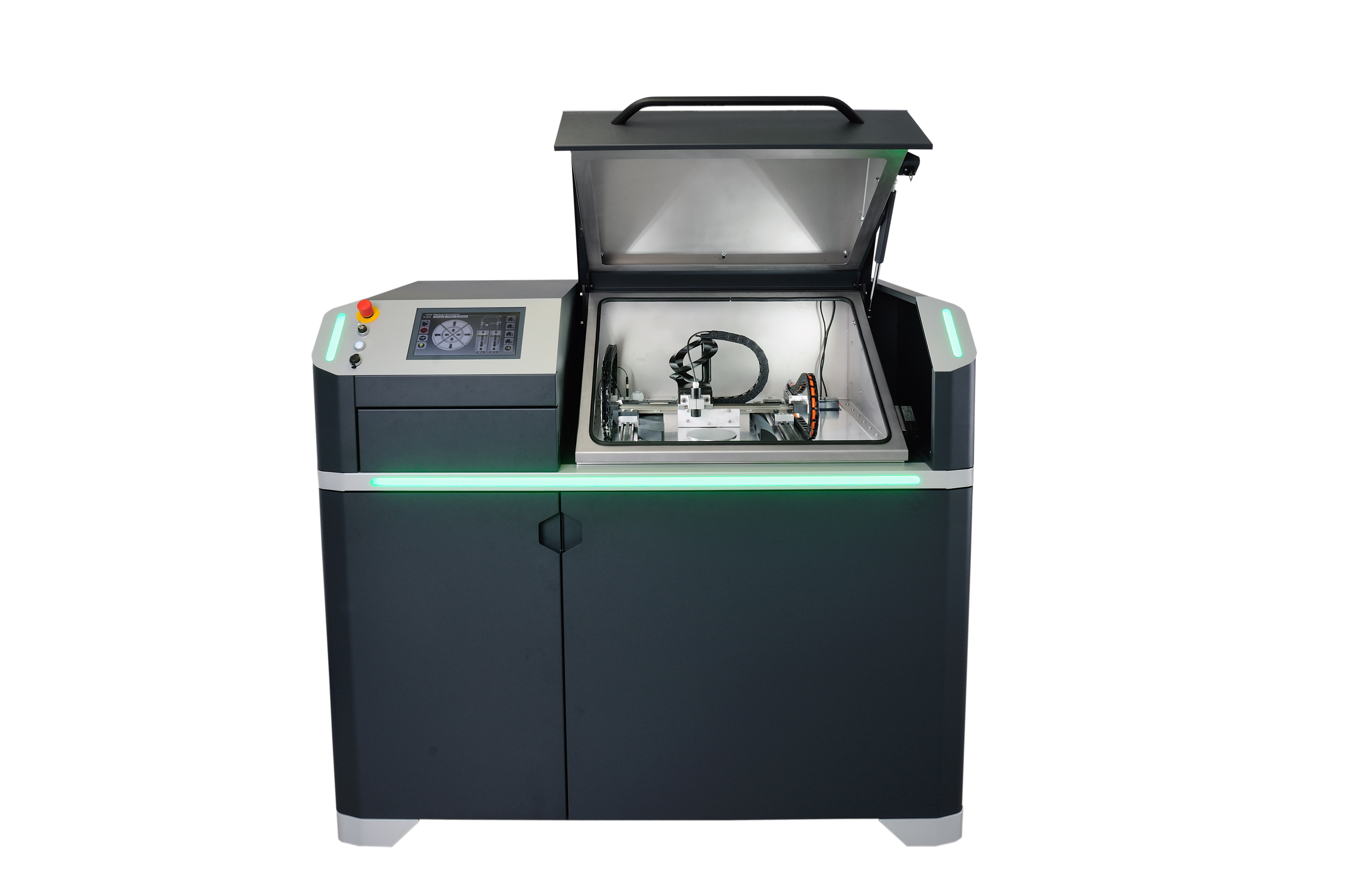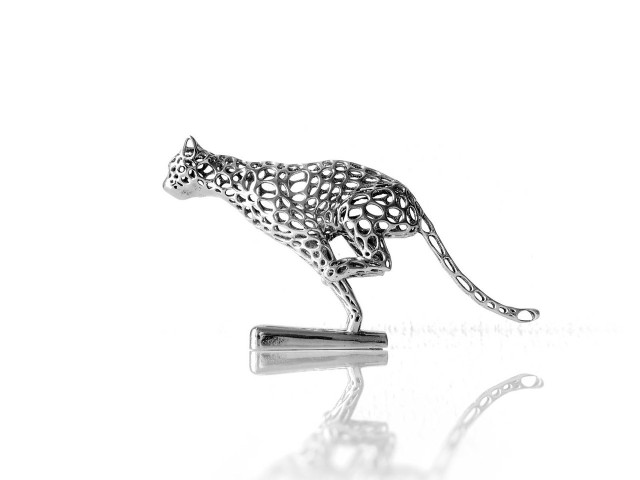formnext 2019
Fraunhofer ILT spin-off wins Start-up Challenge
A spin-off of the Fraunhofer Institute for Laser Technology ILT receives a special distinction: the Aachen-based company Laser Melting Innovations GmbH & Co. KG is one of the winners of the “formnext Start-up Challenge” 2019. The young Aachen scientists will be honored by the jury for the development of their low-cost system on November 19 at the formnext in Frankfurt on the AM4U stage (hall 11.0-F71). With this system for Laser Powder Bed Fusion (LPBF) with metal powder, SMEs in particular have at their disposal an industry-suitable system technology for metallic 3D printing.


In 2016, Dawid Ziebura, a research associate and project manager at Fraunhofer ILT, presented the prototype of a low-cost system for laser powder bed fusion (LPBF) with metal powder at formnext. The machine was produced as part of a project at the Aachen Center for 3D Printing, which was founded as a cooperative venture between Fraunhofer ILT and FH Aachen University of Applied Sciences. Ziebura spotted an opportunity to commercialize a low-cost system aimed primarily at small and medium-sized companies that would make it easier for them to enter the metal 3D printing business.
Enthusiastic industry response to low-cost LPBF
“We opted to use a diode laser instead of an expensive fiber laser,” explains Ziebura. “A further idea was to replace expensive scanner systems with a Cartesian-motion laser system.” The prototype and the ideas for developing it met with such enthusiasm at formnext that the project participants decided to create a spin-off company in 2017. In the end, however, the spin-off Laser Melting Innovations GmbH & Co. KG opted not to pursue the original concept of an affordable assembly kit, and instead focused on developing an industry-ready low-cost LPBF system. “The argument against the original assembly kit idea was that the customer wouldn’t be satisfied even if they had a small, serviceable machine,” says Ziebura. “In most cases, it’s not their core competence, and adapting their manufacturing processes with the machine simply wouldn’t be a viable proposition during day-to-day operations. We realized they needed a fully functional tool they could rely on.”
Complete entry level package for less than 100,000 euros
“Suddenly we were faced with a whole set of new challenges,” says LMI managing director Mirjam Henkel. “We had the process firmly in hand, but now we had to deal with tasks such as CE certification, design and marketing.” One year later, the start-up company launched its fully functional LPBF machine Alpha 140, which – together with the required peripheral parts – comes to less than 100,000 euros. The Alpha 140 incorporates state-of-the-art technology. As well as being a reliable, production-scale solution, it is also far more productive and powerful than the prototype. “The customer doesn’t just get the machine, but also everything he need to get started,” says Ziebura. “That includes the necessary data preparation software, which we developed in-house, as well as the peripheral equipment required for the process.”
Compact machine enables tool-free production
The innovative system works in an argon/nitrogen inert gas environment and uses an air-cooled, fiber-coupled 200 W diode laser with a wavelength of 915 nanometers and a focus diameter of 140 microns. This entry-level model can be used for the additive manufacturing of parts with a maximum height of 200 millimeters and a maximum diameter of 140 millimeters using stainless steel 1.4404, 1.2709 or alloys such as Inconel 625 and 718, CoCr, or AlSi10Mg. It also meets industry requirements for a component density of 99.9 percent and satisfies special geometry requirements. The compact machine also offers the benefit of a small footprint (1675 x 815 x 1508 mm³).
Two pilot systems for research
“The jury chose us because they saw potential,” says Mirjam Henkel. “This is the kind of machine SMEs are looking for, and we’re putting it on the market at exactly the right moment.” The company has already sold two pilot systems that will be used in research. The machine’s versatility will benefit not only researchers, but also industry users, because it allows the process parameters to be flexibly adapted for each part, for example to test new materials. Thanks to the use of a Cartesian coordinate system, the machine also boasts a very large construction chamber. “This gives users the chance to use sensors or cameras. That’s a big difference between our concept and conventional systems that are generally difficult to access,” explains Ziebura.
Follow-up ideas emerge
Dawid Ziebura still works as a research associate at Fraunhofer ILT. The doctoral student looks into the future: “In the joint development projects to date, I have taken on the technical management duties on behalf of Fraunhofer ILT. That’s set to continue until I complete my doctorate. We would also invite other SMEs to join forces with us to put their ideas into practice.”
Anyone interested can find out more by visiting the LMI experts at booth B81H (hall 12) at formnext in Frankfurt am Main (Germany) from November 19 to 22. The presentation of the Start-up Award will take place on November 19 from 5:15 p.m. on the AM4U stage in Hall 11.0-F71.